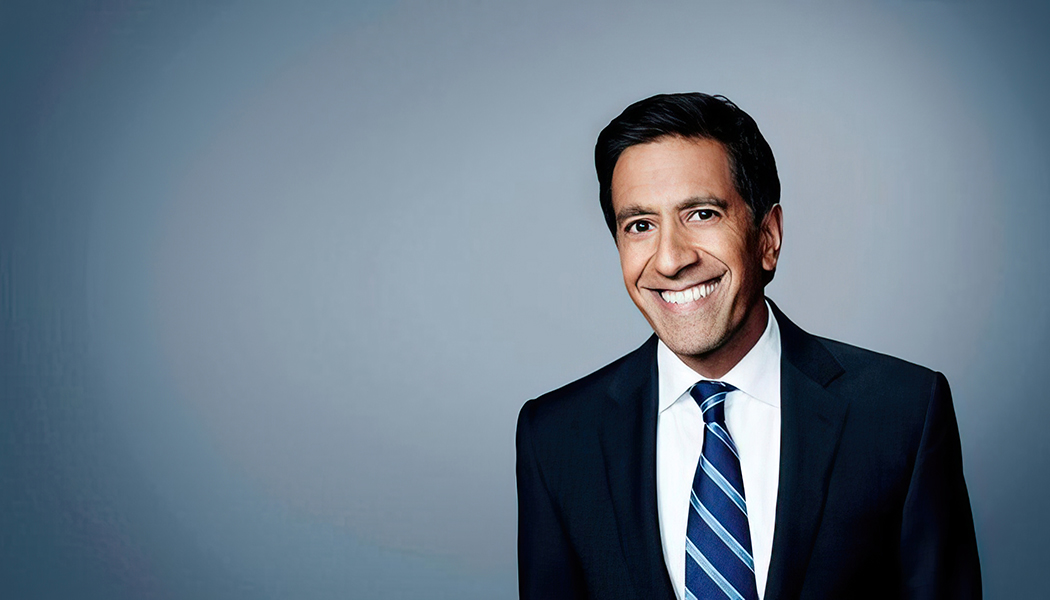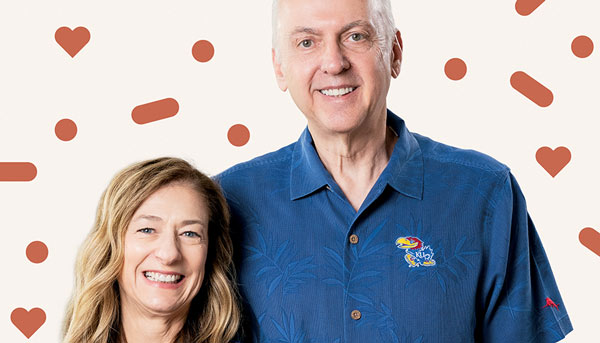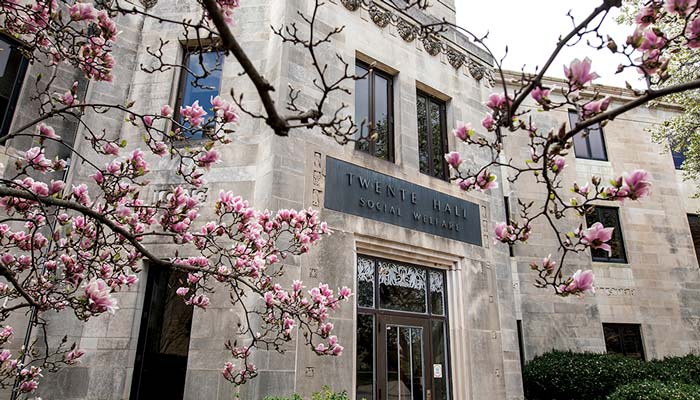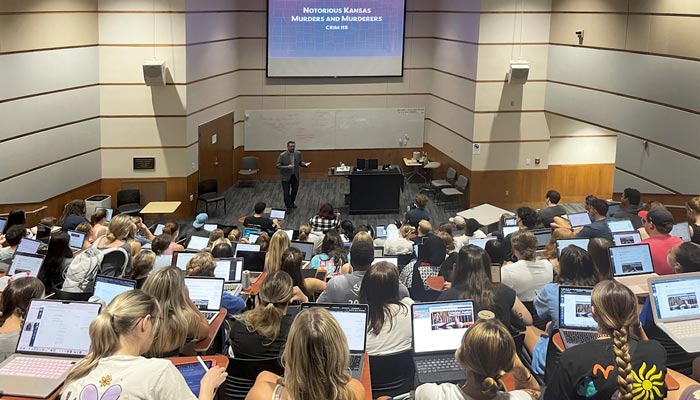Doctor in the house
CNN’s Sanjay Gupta headlines William Allen White Day program

On campus to accept the 2022 National Citation from the William Allen White Foundation at the Kansas Union on April 21, CNN chief medical correspondent Sanjay Gupta noted the connections between his “two chosen loves,” medicine and media.
“Sometimes we are fueled by the same things in these professions, and, like it or not, sometimes we are defined by it,” Gupta said in a speech to journalism students, faculty and foundation members. “Defined not necessarily by what we got right, but what we got wrong, what we could have done better and where we fell a little short. In medicine and media, even if other people don’t notice these things, we do.”
A practicing neurosurgeon who is now associate chief of neurosurgery at Grady Memorial Hospital in Atlanta, Gupta joined CNN in August 2001 to write about health care policy, a topic to which he devoted a year as a White House Fellow during the Clinton administration. He found himself on a different journalistic path after 9/11, which occurred just three weeks into the CNN job.
“The bosses came to me and said, ‘Look, we’re probably not going to be doing health care policy for a while, but you’re a doctor now working at an international news network in the midst of all this. Are these stories that you want to cover?’” Gupta recalled. “And I did.”
The terror attacks and their aftermath, the anthrax scares, the wars in Afghanistan and Iraq all provided “some of the most human stories I’ve ever heard,” Gupta said, calling his on-the-job journalism training a “true baptism by fire.”
Gupta is highly decorated in both his chosen professions. He was elected in 2019 to the National Academy of Medicine, among the highest honors in the medical field. He has won multiple Emmy Awards, including for his coverage of Hurricane Katrina in 2005 and the Haiti earthquake in 2010; contributed to several Peabody Award-winning projects at CNN; and wrote four New York Times bestsellers, including last year’s World War C: Lessons from the COVID-19 Pandemic and How to Prepare for the Next One. Yet he confessed to experiencing some doubt upon learning he’d been selected for the KU honor.
“I’m not worthy, some variation of that,” Gupta said. “Not worthy of an award in the name of William Allen White, the Sage of Emporia, the national unofficial spokesman for middle Americans, upon whose backs America was built.”
Gupta attributed that feeling to his role as “my own best critic” and the reality that journalism’s impact is a difficult thing to measure objectively.
“This award means more than you can really know, not just because it carries the name of someone whose legacy has withstood the test of time,” Gupta said of White, 1890, “but because if there can be such a thing as a measure, I can think of no better arbiters than all of you to create that measurement and to use it. So thank you very much for this.”
In her introduction, Kathleen Conkey, c’80, j’80, chair of the White Foundation, noted that Gupta has exemplified White’s call to speak the truth in plain language accessible to all during his 20 years at CNN, “but never so much as in the past two and a half years, when Dr. Gupta has reported the truth and the science of the coronavirus pandemic. Offering a calm and authoritative voice in the midst of conspiracy theories, panic, sickness and death, Dr. Gupta gave viewers a safe harbor of truth, facts and science.”
The National Citation has been awarded since 1950 to honor the Emporia Gazette editor and namesake of the School of Journalism and Mass Communications. William Allen White Day also includes the presentation of student scholarships and faculty awards.
Photograph courtesy CNN








